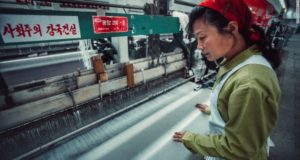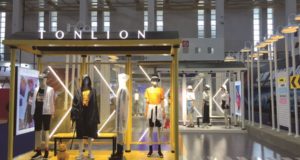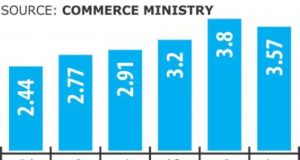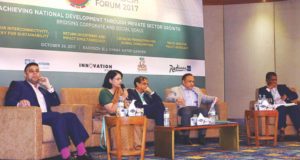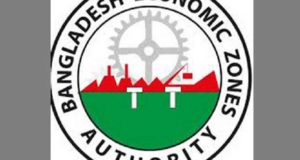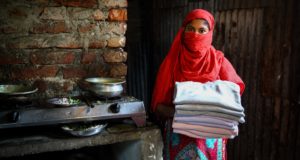Step inside North Korea's largest textile factory and it's not long before you're confronted with a banner emblazoned with the slogan "Kill and tear apart the lunatic Trump." The less-than-subtle banner was just one of a number devoted to US President Donald Trump, whose threats of "fire and fury" over the region's nuclear crisis have earned him few friends in Pyongyang.
Read More »Cost of living in Dhaka has risen 71 percent
People, particularly those who belong to the lower income groups, have been reeling under the weight of rising cost of living for some years now. A report in a leading Bangla daily on October 27 spelled out the situation in a nutshell. According to the Consumers Association of Bangladesh (CAB), the cost of living for Dhaka residents has risen 71 percent over the period 2009–2016. This survey is based on a calculation of cost increases of 114 foodstuffs and 14 utility services (and does not include cost rise of education, health and daily travel).
Read More »China upgrading industrial production through smart technology
NINGBO, China’s biggest clothing manufacturing center, is developing the industry through everything from bespoke clothing to smart technology and the Internet.
Read More »Bangladesh’s exports to the UK unaffected by Brexit
Buoyed by higher shipments of apparel items, Bangladesh's exports to the UK are on the rise although British consumers have been hit hard by rising inflation amid Brexit pressure.
Read More »October 30, 2017: Chevron prolong stay, development fair and trade union leaders training
Every day, CPD RMG Study team reveals what’s on our economic and apparel radar and curates a selection of the best reports, opinion, and analysis you may have missed. Chevron to stay in Bangladesh Chevron intends to make fresh investment ...
Read More »Investors urge for more spending on infrastructure
Bangladesh needs to increase allocation for infrastructure development by more than 3.5 times from its current annual spending of $3.5 billion if it wants to benefit from regional and international connectivity, experts said yesterday.
Read More »EZ factories to enjoy bonded facilities
Industries set up in the country's economic zones (EZs) are now required to pay duty and taxes on imported raw materials if they sell their finished products in the domestic market. The same industries are entitled to enjoy duty-free benefit under the bonded warehouse facility on import of raw materials for their finished goods.
Read More »Australian fashion brands urged to end worker exploitation
Just four cents from every dollar Australians spend on clothing makes it back to workers enduring “horrific” conditions in garment factories, a new report has found. The report adds to pressure on Australia’s big clothing retailers, including Kmart, Big W, and Target, to act faster on their ethical sourcing programs.
Read More »October 29, 2017: Transport strike and agreements for new energy project and rail connection
Every day, CPD RMG Study team reveals what’s on our economic and apparel radar and curates a selection of the best reports, opinion, and analysis you may have missed. 48-hour goods transport strike begins in Chittagong The goods transports’ owners ...
Read More »Garment workers’ rights still a far cry
Four years after the worst industrial disaster in the history of Bangladesh, RMG factories have come a long way in safety issues but workers’ rights still seem to be taking a back seat. Following the Rana Plaza disaster in April 2013, there was widespread criticism of Bangladesh’s readymade garments (RMG) industry, mostly concerning workplace safety and workers’ rights.
Read More » CPD RMG Study Stitching a better future for Bangladesh
CPD RMG Study Stitching a better future for Bangladesh
